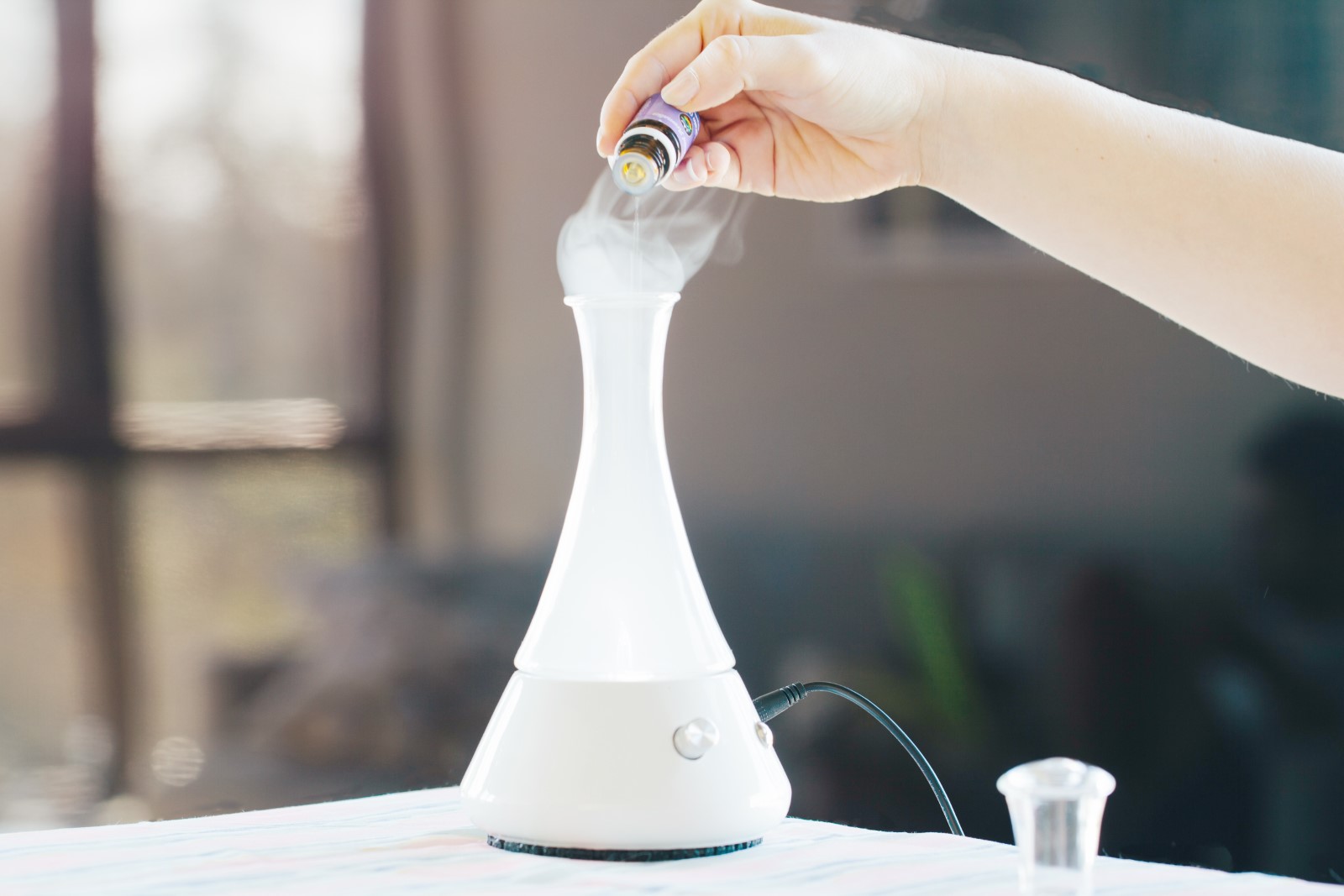Are you feeling overwhelmed? Overworked? How about just plain exhausted mentally and physically? Yeah, we feel ya. Stress is a part of life–there’s no avoiding it given all of life’s nuances, but what we can do is manage stress in a healthy way. If we don’t it’ll just eat us up inside. For the sake of mental clarity, mental health, and wellbeing–and in observance of Mental Health Awareness Month, here are some ways you can not only manage stress but hopefully reduce it and its negative impacts on your day-to-day life.
#1 Sleep
Getting enough sleep is one of the best ways to reduce stress. When you keep your mind from resting, it’s getting overworked and overstimulated to the point of getting overwhelmed. Ever heard of the phrase “sleeping it off” or “sleep on it”? Well, getting quality sleep can help your mind to recuperate and can help you solve any glaring issue–no matter how long you’ve been trying to figure it out. Next time you catch yourself spending restless nights on a wall you’ve hit in a project, get some much-needed shuteye–you might just be overthinking it. And you might just be amazed how quickly you can solve it after some rest.
If you’re having trouble getting quality sleep at home, try a sleep vacation!
#2 Exercise

Photo by Mārtiņš Zemlickis on Unsplash
Studies have shown that people who exercise regularly are less likely to exhibit anxiety or stress. Ergo, science shows that physical stress can help relieve mental stress.
Exercise lowers the body’s stress hormone, cortisol, over time. It increases endorphins which are mood-boosters resulting in an overall happy body and a happy mind. Exercise can also help you sleep better!
#3 Essential oils

Think about everything that makes up a spa, aside from the amazing massages. Some essential oils, in particular, can help reduce stress. Invest in an aromatherapy diffuser of some sort–we love this one from Vitruvi–add a few drops and curl up with a good book. The scent will permeate the room and help you decompress after a long day.
Some relaxing scents include:
- Lavender – known to soothe and relax you, and help you sleep
- Ylang Ylang – contains uplifting properties and can help alleviate stress, anxiety, and depression
- Bergamot – helps to treat stress, depression, and insomnia
- Chamomile – known to have calming properties and used as a natural anti-depressant, eases worry, irritability and reduces anxiety
- Vetiver – used most effectively in trauma situations to help ease a person’s nerves; it calms and reassures–best for people experiencing panic attacks and hypersensitivity
- Rose – helps reduce stress, anxiety, and depression
If you don’t have a diffuser on hand, some essential oils can be used topically (they usually come in the form of rollerballs), but make sure you aren’t allergic before use. A great substitute: candles that contain one or more of these soothing scents.
#4 Reduce your caffeine intake
High doses of caffeine can cause jitteriness, irritability, restlessness, and overall can increase anxiety according to studies. This can vary among people and dosages, but if you are experiencing that caffeine is making you anxious or jittery, consider reducing your intake.
#5 Don’t procrastinate
We all do it–sometimes things just get shuffled down our list of priorities and things just getting piled up. To avoid procrastinating, make a task list, either digital or written down, that you can refer to and follow. Schedule in time in your day to take care of a couple of things that are way overdue. The best policy is to do 1-2 tasks per day instead of doing them all in one go–which can be daunting enough to just avoid doing them altogether. Make sure you also schedule in some ‘me time’ to relax and not do anything. It’s all about balance and creating a sustainable lifestyle.
#6 Journal
Writing things down can be therapeutic if you have a lot on your mind. It can be a great option for those who don’t want to share with another person and just need to release some pent-up stress.
If what you’re jotting down is mostly negative, remember to also write some positives about your life, or things you’re grateful for. Being mindful, having gratitude, and reflecting on positive aspects of life can help you alleviate some stress and focus on the bright side even when things seem bleak.
#7 Spend time with loved ones

Photo by Jennifer Regnier on Unsplash
As humans, having a sense of belonging plays a huge role in overall happiness–it’s our nature. Even for you introverts out there (myself included), being alone all the time can take a toll on you. If you’re feeling stressed, consider asking a friend or family member to grab a bite or go out on a stroll. Some quality time, and getting a chance to vent about what’s stressing you out may do a great deal for your mental health.
#8 Practice mindfulness
Part of achieving mental clarity is being mindful–the practice of being present and reducing negative thoughts. This can help relieve stress and grant you clarity.
Meditation is one of the best ways you can start your practice and learn to be present. Don’t overthink it–just be. Check out our walk-through on how to meditate and be mindful.
#9 Physical touch
Aside from being one of The 5 Love Languages by Gary Chapman, physical touch is a great way to reduce stress and anxiety. A simple hug, kiss, cuddle or even intercourse can help you find release. A weighted blanket can also reduce stress and anxiety as well–without needing another person.
#10 Relax with music
It’s no secret that music can stimulate the brain, but it can also calm the noise in your mind. Listen to soothing jazz or classical music–anything that can help you relax. Some people might even enjoy ambient noise instead of music to decompress. Just find what fits for you, plug in, and relax.
#11 Focus on your breathing
If the stress is overwhelming you, practicing your breathing can help relieve some of that tension. Take deep breaths–this is where meditation can help as well–and try to be present instead of focusing on the stressor.
The scientific explanation? Deep breathing activates the parasympathetic nervous system that helps you relax even in periods of stress allowing you to find peace and to be present.
#12 Spend time with your pet

Photo by Marvin Meyer on Unsplash
If family and friends aren’t within reach, spending time with your pet can help reduce stress and improve your mood. When you care for a pet, your brain releases a chemical known as oxytocin that promotes a positive mood.
#13 Do something you love
Do you love to play music? Do you enjoy bowling? Do you love to play volleyball? Doing something you love can help reduce stress and release endorphins that boost your mood. If you don’t have a hobby, it might be time to find something you enjoy and make it a part of your life.
#14 The power of “no”
Taking on too much and constantly saying “yes” when anyone needs anything can wear you down. We’re human–we can’t do everything. Sometimes you need to say “no”; it doesn’t mean you don’t care or that the task isn’t important enough, and people will understand. You’ll find there is power in being able to say “no” and in being in charge of your own wellbeing.
#15 See a professional
Sometimes stress isn’t just stress; it can have underlying issues or morph into something greater. If you’re finding it difficult to manage your stress, having negative thoughts, or need someone to talk to, seeing a therapist might help. Your mental health is just as important as your physical health–if not more. Knowing when to seek professional help is the best thing you can do for yourself, your wellbeing, and for improving your quality of life.
For information about Mental Health Awareness Month or help and resources, visit: https://www.nami.org/mentalhealthmonth